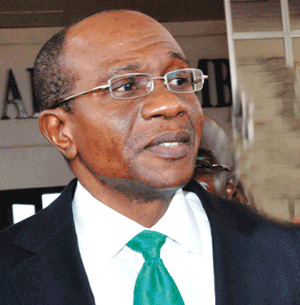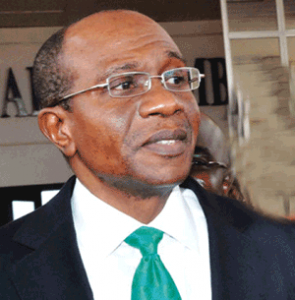Importers and investors moved their foreign exchange (forex) demands to the parallel market on Tuesday, June 23 after the Central Bank of Nigeria (CBN) banned the sale of dollar to 40 categories of importers, putting pressure on the naira in that segment of the market.
Naira’s value to the dollar had relapsed to N222 (parallel market) and N199 (interbank market) from about N180 to the dollar shortly after the inauguration of President Muhammadu Buhari on May 29.
Long shot
Analysts said the naira to dollar exchange rate will eventually settle at between N230 and N250 as forex reserves are too low to defend an overvalued local currency.
Excluded items
A CBN circular dated June 23, signed by Trade and Exchange Director, Olakanmi Gbadamosi, announced the stoppage of the sale of forex to importers of rice, private jets, textiles, tomato paste, poultry products, and 35 other items.
The move is to encourage local production of some of the items, conserve forex reserves, and improve the exchange rate.
“The importation of these items are not banned, thus importers desirous of importing [them] shall do so using their funds without any recourse to the Nigerian foreign exchange market,” explained the circular, which was posted on the CBN website.
The 40 items are cement, margarine, palm kernel, vegetable oil, poultry products (chicken, eggs, turkey), Indian incense, tinned fish in sauce (Geisha, Sardines), cold rolled steel sheets, galvanised steel, roofing sheets, wheelbarrows, head pans, metal boxes and containers, and enamelware.
They also include steel drum, steel pipes, wire mesh, steel nails, wire rods, security wire, wood particle and board, wood fibre boards and panel, plywood board and panel, wooden doors, toothpicks, glass and glassware, kitchen utensils, tableware, tiles and wooden fabrics, plastic and rubber products, soap and cosmetics.
Effort may yield little result
However, financial analysts said the exclusion of these 40 categories of importers and users of dollar from the Nigerian forex market may go down as one of the many futile efforts of the CBN to conserve the dollar in order to save the naira.
Ayodeji Ebo, the Head of Research and Investment at Afrinvest West Africa, said the CBN needs to do something urgently otherwise the slide in the value of the naira will continue.
“If the pressure continues, the CBN may devalue the naira. I think the CBN is also waiting to see the plan of the new government in order to align its monetary policies with it.
“Once the new government comes up with its plan, the CBN may devalue the naira. If that is done, foreign investors who have been waiting on the sidelines will come in,” he explained.
David Cowan, Africa Economist/Managing Director, Citi Bank, sounded a warning on the sidelines of the EuroFinance conference in Lagos that the CBN would once more devalue the naira towards the end of the year.
He argued that Nigeria’s external reserves are too low to sustain the defence of the currency.
Said Cowan: “What the Central Bank is battling is to the extent and how much the naira has to adjust. At the moment, the CBN thinks the naira has adjusted enough, while the market doesn’t think it has adjusted enough.
“I still think we are going to see an adjustment to the naira. The fiscal and current account deficit tells us there is a lack of real return and I think it is also in the bottom line they haven’t got the reserves in defending the naira.”
In his view, the CBN does not want the external reserves, which stood at $29.031 billion on Monday, June 22, to decline further.
“But there is still a long period in this stand off which would last maybe three, four months or longer. Whatever happens, I still think that the exchange rate would end up around N220/$1 late 2015.”
The CBN devalued the naira in November 2014 after spending several billions of dollars to defend it. In February this year, it further adjusted the band to N196 thereby devaluing the currency the second time.
Association of Bureau De Change Operators acting National President, Aminu Gwadabe, said the naira may fall to N230 against the dollar in the coming weeks if the CBN fails to curb the increasing dollar demand at the parallel market.
According to him, maturing import bills are making the demand for dollar to rise again and importers and investors who could not access dollar at the official market are turning to parallel market.
Historical measures
In the last one year, the CBN has maintained a tight monetary policy to stabilise the exchange rate against global headwinds threatening the value of the naira.
Monetary policy rate (MPR) is currently at 13 per cent, while cash reserve ratio (CRR) was harmonised at 31 per cent at the last meeting of the MPR committee.
To check rent-seeking operators, the CBN has regulated the operations of Bureaux de Change (BDCs), curbed unauthorised financial transactions, dollarising the economy, the unwieldy number of BDCs, and the unenviable position of Nigeria as the largest importer of dollars in the world.
It stopped the bi-weekly sale of forex through the Retail Dutch Auction System (RDAS) and Wholesale Dutch Auction System (WDAS), effectively stopping the sale to manufacturers and oil marketers at the hugely subsidised official rate.
Before then, importers of fuel products and certain categories of manufacturers were allowed to buy forex through the CBN window.
But as the margin between the official and interbank rates widened, it became more lucrative for eligible buyers to engage in arbitrage instead of importing goods for which they supposedly bought forex.
The need to achieve exchange rate stability and preserve forex reserves also prompted the CBN to review downward the spending limit on the use of naira denominated debit cards for transactions abroad, from $150,000 per person per year to $50,000 per person per year.
Daily cash withdrawal limit on the card is fixed at $300 per person.
Despite all these measures, however, the naira remains under pressure and continues to depreciate, raising doubts as to whether the latest gambit will stem its depreciation and conserve external reserves.
















